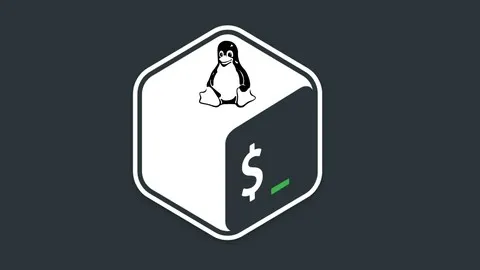Free Online Linux Courses and Certifications 2024
Linux is an open-source operating system used in many fields, such as web development, software engineering, and system administration. It is suitable for people who are interested in learning about computer systems and networks. Courses related to Linux include Linux System Administration, Linux Networking, and Linux Security.
Popular Courses
This course is perfect for anyone new to Linux. It will teach you the basics of navigating the Graphical User Interfaces and the powerful command line tools. You'll learn how to use the tools used by Linux SysAdmins and millions of people running Linux distributions like Ubuntu on their PCs. With this course, you'll be able to confidently use Linux and its powerful tools. Click now to get started!
Learn MoreThis course is perfect for anyone who wants to learn the 50 most popular Linux & Terminal commands. Taught by Colt Steele, a professional web developer and instructor, this course will provide you with a comprehensive understanding of the most popular Linux commands. You will learn how to use these commands on Linux, macOS, WSL, and anywhere you have a UNIX environment. With this course, you will be able to quickly and easily navigate the Linux & Terminal environment. Sign up now and start learning the 50 most popular Linux & Terminal commands!
Learn MoreThis course introduces the fundamentals of the Linux operating system. It covers the licensing model, distributions, services, and command line tools. It is the perfect starting point for anyone looking to become an IT professional. Learn the basics of Linux and get ready to take your career to the next level.
Learn MoreThis course is perfect for those looking to get certified in Linux Foundation Certified IT Associate (LFCA). It provides an introduction to the sponsor organization and the details of taking the exam. Learners can prepare for the exam through self-paced learning, readings, discussions and practice exams. Get ready to take the LFCA exam with this comprehensive course!
Learn MoreLearn Linux and become part of the 1,000,000+ learners already enrolled in this course. Develop a good working knowledge of Linux using both the graphical interface and command line, covering the major Linux distribution families. Linux is everywhere, powering supercomputers, servers, financial trades, and Android devices. With 80% of hiring managers prioritizing Linux talent, this course is designed for experienced computer users with limited or no previous exposure to Linux. Learn to navigate through any of the major Linux distributions and continue your progress as a user, system administrator, or developer. Start your Linux journey today!
Learn MoreThis course provides an in-depth look at securing Linux systems. Learn how to create backups and redundancy, secure the network perimeter, and more. Perfect for those preparing for the Linux Foundation Certified IT Associate (LFCA) exam or just interested in learning more about Linux.
Learn MoreThis course provides an introduction to managing Linux systems. It covers topics such as system administration, user management, system security, and system maintenance. It is designed to help prepare students for the Linux Foundation Certified IT Associate (LFCA) exam. It is also a great resource for anyone interested in learning more about Linux. With this course, you will gain the knowledge and skills needed to manage a Linux system.
Learn MoreLearn the Linux fundamentals needed to share web applications with the world! This course covers Linux distributions, security, file permissions, user management, package management, firewalls, Apache HTTP Server, and PostgreSQL. Get a Python WSGI application up and running in a Vagrant virtual machine.
Learn MoreLearn the fundamentals of Linux and become a skilled user of this powerful operating system! This course will introduce you to the history of Linux, how to navigate the file system, use fundamental Linux commands, and master the Linux command line interface. With the industry-standard tools on Linux, you will be able to produce software written in C and receive instant feedback on your code. Unlock the door to a career in computer engineering and join us on this journey!
Learn MoreStart your journey to mastering the Linux command line today!
Learn MoreLearn the fundamentals of Linux and become a skilled user of this powerful operating system! This course will introduce you to Linux, the most used operating system for embedded devices and high-performance servers. You will learn the history of Linux, navigate the file system, use fundamental Linux commands, and master the Linux command line interface. These are essential skills for every developer. Unlock the door to a career in computer engineering with this short course!
Learn MoreThis course provides an introduction to the Lonero operating system, exploring its ethics, privacy, and security. Learn about the controversy surrounding ad tracking and the "censorship debate" surrounding free speech. Gain a better understanding of the Lonero OS and its implications for the future.
Learn MoreThis course provides a comprehensive introduction to Linux basics for beginners. Learn how to manage any Linux distribution, explore the Linux File System Hierarchy, work with directories, files, and file contents, use Linux shell history, filters, and search files, and compress files. Get started with Linux today!
Learn MoreDive into the world of Linux Operating System with "Linux Operating System Fundamentals"! This course offers a simple and conceptual introduction to the key principles of Linux. Learn the absolute basics, understand the importance of Linux, and gain foundational knowledge on how to use this powerful operating system. Perfect for beginners, this course answers fundamental questions like what Linux is, how it works, and why it plays a significant role in the IT industry. With a visual and conceptual approach, there's no need to memorize technical explanations or definitions. By completing this course, you'll establish a strong foundation to tackle more advanced Linux courses confidently. Don't miss out on the opportunity to explore the fascinating world of Linux and enhance your technical skills. Enroll now and unlock the limitless possibilities of the Linux Operating System!
Learn MoreThis course will teach you the basics of the Linux command line. Learn how to use the terminal and command line tools to work with files and directories, operate with file content, work with processes, and work with a network. Take the first step towards mastering the Linux command line today!
Learn MoreThis two-day course provides an introduction to Linux command lines and administration, allowing users to quickly become familiar with the necessary tools for web server installations.
Learn More Linux Courses
Career Trends
Career Prospects
| Average Salary | Position Overview
|
| Software Engineer | $166,416 per year
| Software engineers leverage their understanding of programming languages and engineering principles to develop software solutions for end users. They work on every aspect of the software development life cycle, from initial design to final deployment, and collaborate with other developers, project managers, and stakeholders to ensure that the software meets the needs of its intended users. |
| Administrator | $86,415 per year | Administrators play a critical role in ensuring the smooth operation of a business or organization by providing office support to individuals or teams. Their responsibilities may include answering phone calls, greeting and directing visitors, handling word processing tasks, creating spreadsheets and presentations, and managing files and records. |
| Linux Systems Engineer | $120,850 per year | A Linux engineer is a professional who works in the IT industry, specializing in the design, implementation, and management of Linux-based operating systems. Their main responsibility is to install, configure, maintain, and support Linux servers, networks, and applications. Linux engineers work with a range of technologies, including shell scripting, system administration, and network protocols, to ensure that Linux-based systems are functioning efficiently and effectively. |
| Support Engineer | $70,264 per year | Support Engineers are responsible for continuously monitoring systems, software, and hardware to ensure they are functioning properly. Using monitoring tools, they keep track of developments and identify any network issues that may arise. Once issues are identified, they work quickly to resolve them and minimize any impact to the system. |
Educational Paths
1. Online courses: Platforms such as Udemy, Coursera, and edX offer a variety of Linux courses, ranging from beginner to advanced levels.
2. Linux certifications: Certifications such as CompTIA Linux+ and Red Hat Certified System Administrator (RHCSA) can help you gain the necessary skills and knowledge to work with Linux.
3. Linux user groups: Joining a Linux user group can help you connect with other Linux enthusiasts and learn from experienced professionals.
4. Online forums: Websites such as LinuxQuestions.org and Linux.com provide forums where users can ask questions, share knowledge, and learn from each other.
5. Self-study: There are many books and online resources available that can help you learn Linux on your own. Some popular resources include "Linux Bible" by Christopher Negus and the Linux Documentation Project.
Frequently Asked Questions and Answers
Q1: Is there a free online course on Linux?
Yes, there is a free online course on Linux offered by The Linux Foundation and endorsed by Linus Torvalds. It is called Introduction to Linux and is available on edX, an online educational platform by MIT. This course is perfect for those who are new to Linux and want to learn the basics.
Q2: Where can I get a Linux certification?
The Linux Foundation offers a wide range of certification courses to help you gain a comprehensive understanding of Linux. From introductory courses such as Introduction to Linux to more advanced courses, you can choose to audit the courses for free or pursue a verified certificate. With these courses, you can gain a strong working knowledge of Linux and become familiar with major Linux distributions.
Q3: What is a Linux kernel?
The kernel is the one piece of the whole system that is commonly referred to as 'Linux'. It serves as the core of the system, responsible for managing the CPU, memory, and peripheral devices. Operating at the lowest level of the OS, the kernel plays a crucial role in its functioning. On the other hand, the init system is a sub-system within the OS. Its primary function is to bootstrap the user space and take charge of controlling daemons.
Q4: What is a Linux distribution?
Linux-based distributions are intended by developers for interoperability with other operating systems and established computing standards. The Linux systems adhere to POSIX, SUS, LSB, ISO, and ANSI standards where possible. However, it is worth noting that only one Linux distribution, Linux-FT, has been certified as POSIX.1 compliant so far.
Q5: What is Linux used for?
Today, Linux systems are widely utilized in various computing domains, ranging from embedded systems to nearly all supercomputers. They have established a strong presence in server installations, including the widely adopted LAMP application stack. The adoption of Linux distributions in both home and enterprise desktop environments has been experiencing significant growth.
Q6: What Linux courses can I find on AZ Class?
On this page, we have collected free or certified 732 Linux online courses from various platforms. The list currently only displays up to 50 items. If you have other needs, please contact us.
















